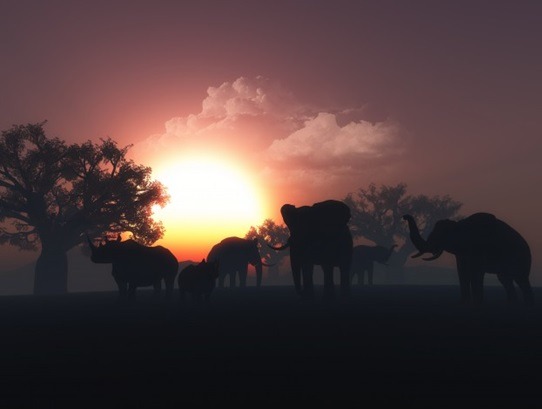There is no surprise that we’ve lost a staggering number of animals over the past four decades. Population explosion, pollution, mass culture, global warming, animal trafficking, and other harmful causes–all caused by humans–have nearly wiped out these animals.
According to estimates, around 10,000 animals perish every year, significantly reducing the world’s wildlife species in just 40 years. One of Jeffrey Kluger’s first great laws of terrestrial biology is that “no animal is eternal.” Experts predict that the current rate of extinction is 1,000 to 10,000 times greater than the normal extinctions.
Since planet earth is home to different kinds of animals, i.e. humans, wildlife, aquatic life, the growing extinction can harm the global environment. To counter these extinctions, certain companies, more prominently Ellipse Projects, are trying to save wildlife from Kenya and make a big difference.
What is Causing Wildlife Extinction?
Many of the current ecosystem changes are due to human activities. Although natural disruptions occur from time to time, human disturbances place heavy pressure on habitats and significantly affect ecosystems.
Ecosystems are constantly impacted by human threats such as clear-cutting, habitat destruction, and pollution. As soon as the environment adjusts to one stress, another emerges. Many of the habitats we depend on are not given enough time to adapt to the new circumstances.
Why Do We Need to Save Wildlife?
Wildlife provides us with various socio-economic benefits, including food, pollinators, pest control, medicinal use, and genetic tools, to name a few. Apart from this practical value, we should respect the inherent value of other animals and acknowledge the obligation to protect them as human beings.
Habitat depletion and illegal trafficking are the two most severe threats to our biodiversity.
These are problems that also jeopardize human well-being and long-term sustainability. When wildlife habitats are destroyed and biodiversity is lost, critical environmental resources are adversely affected.
Why is Biodiversity Critical to Humans?
Biodiversity is critically relevant to the disadvantaged population, which make-up 75 percent of the people and counts on biodiversity for their daily sustenance. Human activity on the climate has a significant effect on ecosystems. Biodiversity is essential for the survival of Earth’s natural environment and human existence.
The average annual temperature is steadily rising as a result of climate change. The disruption of natural events is one of the most visible ways that climate change is affecting biodiversity. Hotter temperatures cause plant species to bloom sooner in the year and migratory birds to return earlier in the spring from their wintering grounds.
Suppose we trace the energy we get from food back to the sun. In that case, plants consume light energy, transform it into sugars (photosynthesis), and generate energy for other animals. Animals absorb that energy when they eat their prey. Having biodiversity adds to our health and especially for people who rely on agriculture and animals.
Conclusion
It is the responsibility of humans to protect lives aside from human beings. We should take measures ourselves or support campaigns run by certain companies like Ellipse Projects.

